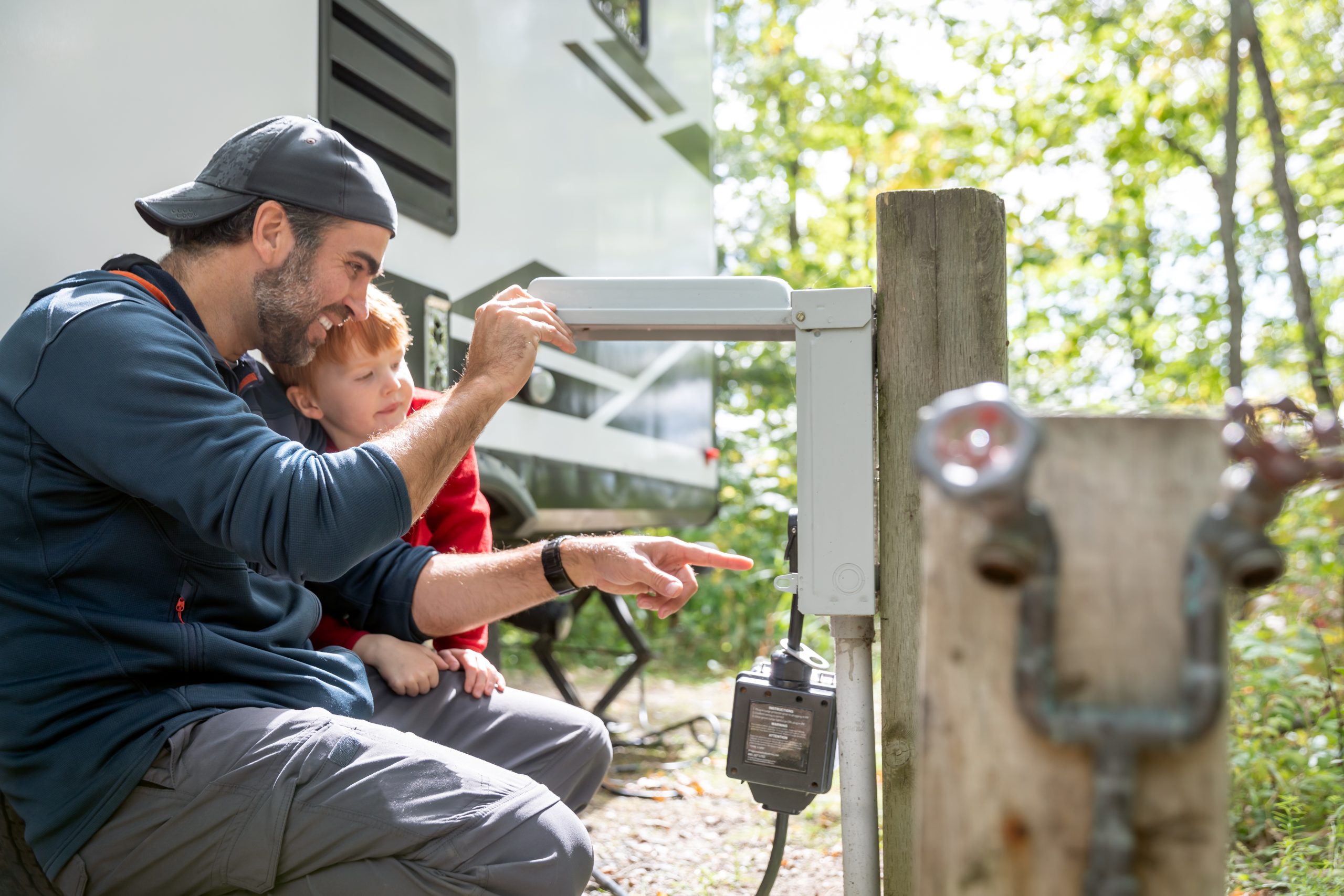It’s always important to use electricity safely. During the month of May, the electric power industry, including the team at Indiana Electric Cooperatives (IEC), calls special attention to electrical safety.
“May is National Electrical Safety Month,” says Rick Coons, CEO at IEC, “and all of us at Indiana Electric Cooperatives want to use it as an opportunity to remind local residents about the importance of using electricity safely in their homes and at their workplaces.”
National Electrical Safety Month is a great time to look around our homes and workplaces and see what we can do to minimize the possibility of damage or injury from electrical problems or the misuse of electricity. That’s especially important given that problems with electricity lead to more than 53,000 home fires, $1.4 billion in property damage, and 450 lives on average each year. Electrical hazards in the workplace lead to an average of 4,000 injuries annually.
Protect your home and family by following these safety tips from IEC:
- Before performing any electrical work, turn off the power to the circuit by switching off the circuit breaker at the main service panel or removing the fuse.
- Even if you’re sure that you’ve shut off a circuit, test the wires before you touch them.
- Using ground-fault circuit interrupters (GFCIs) with power tools will protect against shock hazards.
- Always unplug lamps or appliances before performing maintenance.
- Never work with or near electricity if you’re standing on a damp floor or in a puddle.
- Do not overload outlets with too many plugs.
- Use extension cords only on a temporary basis.
- Always pull on the plug when unplugging an electrical cord. Never pull on the cord itself.
- Keep liquids such as drinks away from electrical items. If they spill, they can damage the equipment, or even cause dangerous shocks or fires.
- Make sure you have smoke alarms installed throughout your home, and check the batteries in them every year. You should have a smoke alarm in every bedroom, and at least one on every level of your home.
- Have a fire extinguisher that’s rated for Class C (electrical) fires.
- Never use a higher-wattage light bulb than what your fixture is made to handle.
- Never run electrical cords under rugs, carpeting, or draperies, because the cords may become hot.
- If you’re having problems such as dimming lights, or if your fuses or circuit breakers trip too often, have your wiring inspected by a licensed electrician.
- Develop (and practice) a family escape plan in case your home catches fire.
Finally, remember that nobody but a trained and licensed electrician should perform electrical installations or repairs on your home. Performing complicated work yourself or having someone who is unqualified do it may save you a few dollars, but the potential for catastrophic damage to your home or injuries to family members far outweighs any savings.
SOURCES :Electrical Safety Foundation International



